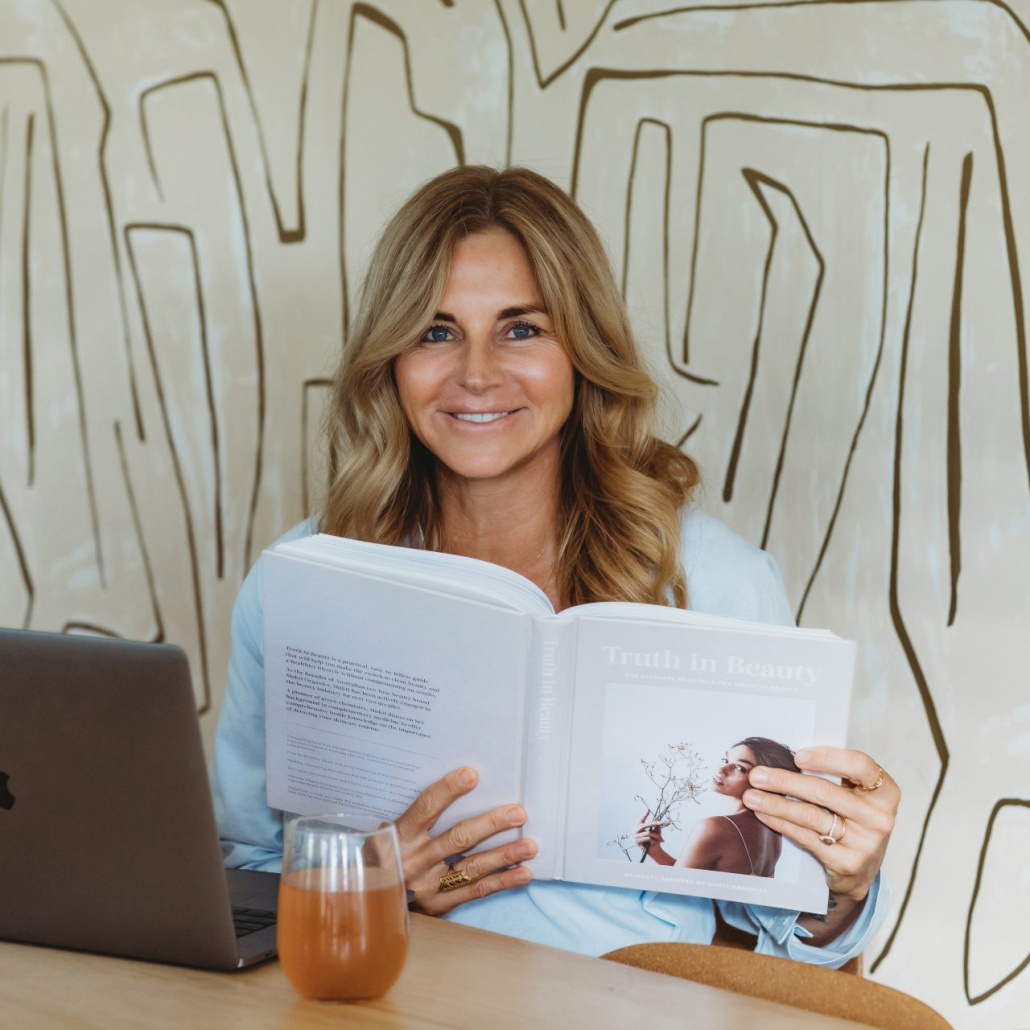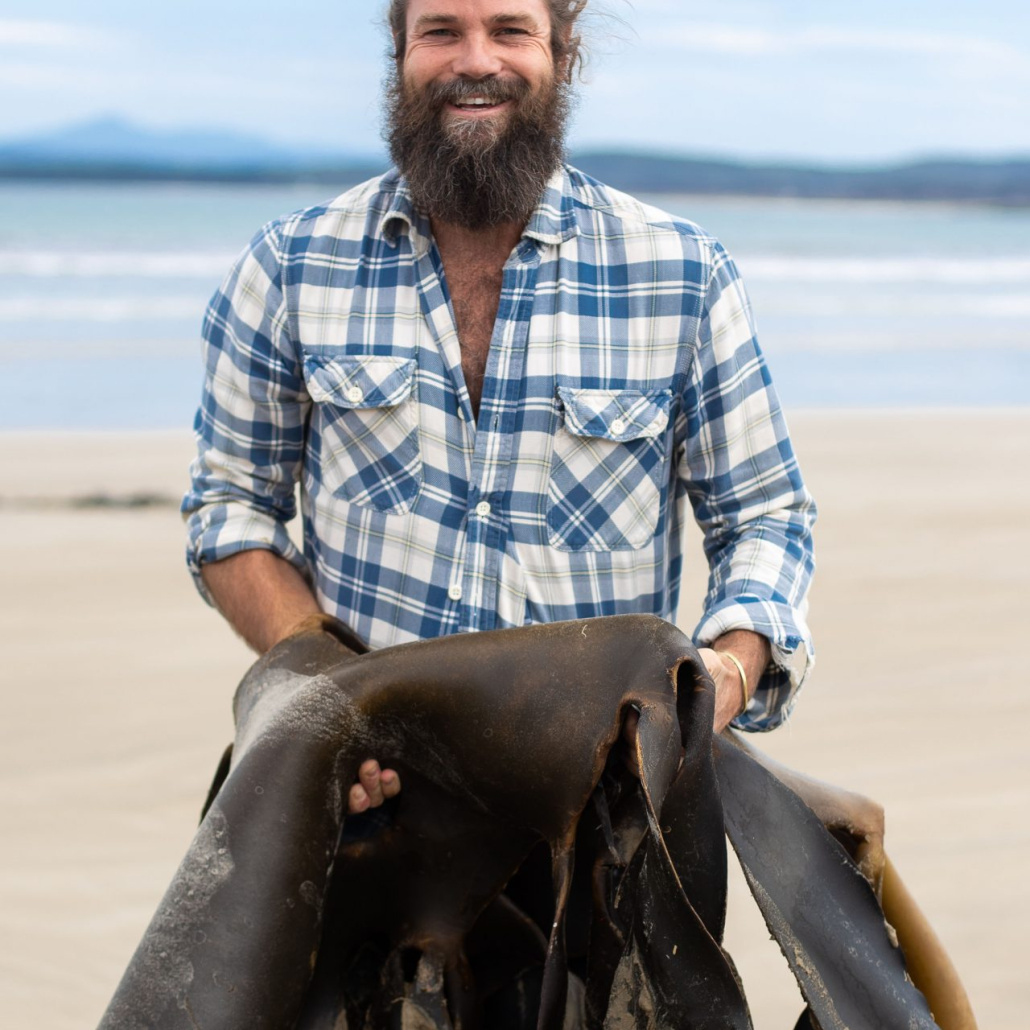
Deb Sams, Sam Elsom, Mukti and Tim Silverwood share their thoughts on how to tackle Plastic Free July, now and beyond.
- Culture
Inspiring Change in Plastic Free July
A conversation with friends on their journey to reduce single use plastic
In honour of Plastic Free July, a global movement that helps millions of people be part of the solution to plastic pollution, we caught up with four of our favourite innovators to find out how they’re doing their bit to combat single-use plastic, not just for the month of July, but for the days and weeks (and years) beyond.
You’ll hear from Mukti, Mukti Organics founder and sustainable living advocate; Tim Silverwood, Take 3 For the Sea and Ocean Impact Organisation; Sam Elsom, CEO of Sea Forest, and Deborah Sams, Director and Co-founder of bassike, who are all passionate about living a sustainable life in their own unique way.
So, whether you’re a beginner looking for a few items to avoid, or someone well on their way to a plastic free life, their ideas will inspire you at home, work, school, and within your community.

What are some of the ways you’re reducing single-use plastic waste at home, work, or in your community?
Tim: I’m pretty fanatical about avoiding single-use plastic across the board and believe it comes down first and foremost to a mindset shift, which is why behaviour change campaigns like Plastic Free July are so important. Being prepared with my reusables in my computer bag with me is a huge help and then choosing where I shop is another. Bulk food stores and the farmers market are brilliant for packaging free produce.
Mukti: At home, I avoid using single-use products in plastic or otherwise. At work, we are changing over any plastic products (body and hair care) to post-consumer recycled plastics (PCR). When we move to our new HQ in Mullumbimby later this year, there are plans for a refill station for body and hair care lines.
Sam: We try to do a lot at home and in our lives to reduce our use of plastic. It’s as simple as asking for no lid on your take away coffee if you forget your keep cup, to using plastic free bin bags, using paper bags for fruit and veggies in the supermarket are a few examples.
Deborah: We have implemented a number of initiatives at bassike to reduce single-use plastic including soft plastic recycling at our head office and across all of our retail stores, and the use of hangers made from recycled marine plastic for garment storage in our distribution centre.
Who are some of the plastic-fighting eco warriors, or what are some of the initiatives that have inspired you? For example, The Seabin Project.
Tim: There are so many amazing individuals, organisations and innovations out there taking on the big challenges the ocean faces, including plastic pollution. Some of the innovative solutions that come to mind are those using new compostable materials for new types of packaging, those developing refillable and reusable take-back business models and those reducing the release of pervasive pollutants into the environment.
Mukti: I really admire filmmaker Damon Gameau in the documentary, 2040. He’s a brilliant, eloquent educator with a very strong message and positive outlook on how we can create a more sustainable future. Another favourite is Zach Bush MD who has a big focus on regenerative farming practices and soil microbiome. He also has a massive heart and is a wonderful, compassionate speaker.
Sam: A startup company out of WA called Uluu is doing great things making plastic alternatives from Seaweed. It’s in its early stages but with exciting potential.
Deborah: Having always lived on the Northern Beaches of Sydney, the ocean is something very close to my heart that often serves as inspiration and a calming influence on my busy life. Take 3 for the Sea has always resonated with me, and I think the simplicity of the message is very powerful when trying to inspire action in our community.

What does a sustainable lifestyle mean to you?
Tim: For me I allow myself to take a moment to assess the impact of my consumer decisions. I ask myself a series of short questions: “What are the environmental and social impacts of the products and services I consume? How do I feel about being associated with those impacts? Is there a way I can consume with a lesser or more positive impact?” It’s a very satisfying feeling to take on this thinking and make small changes that add up to a big difference. You certainly don’t need to be perfect but each improvement counts.
Mukti: Being a minimalist wherever possible. Thinking about purchases rather than spontaneously buying something. Saying no to takeaway coffee. Saying no to aeroplane food. Buying quality, long lasting fabrics and products that will last for years rather than throw away fashion. Avoiding plastic wherever possible and opting for glass instead that can be used infinitely.
Sam: Reviewing the choices we make in life with the impact it has on the planet. Sustainability to me is a broad term that’s both over used and largely losing its meaning. Nothing can be created without an impact but there are ways we can rethink supply chains to reduce the use of virgin materials and recycle or create circular business models with everything from white goods to running shoes. Sustainability to me means to live within planetary boundaries. It means making tough decisions to change our habits in order to sustain the lifestyle we currently enjoy on the planet.
Deborah: To me, a sustainable lifestyle is about being a conscious consumer and making the better choice – whether that be choosing a bassike t.shirt made locally from organic cotton over a non-natural fibre alternative, buying direct from the farmer at the markets, or switching your power bill to renewable energy sources. Every little change you make has an impact.

As we know, the conveniences of plastic use led to a throw-away culture; and now single-use plastics account for 40 percent of the plastic produced every year. What advice do you have for individuals looking to make better, more sustainable choices?
Tim:Your voice and your decisions matter. You have a big sphere of influence around you so what you do can have a big impact, especially when you talk about it. Vote with your wallet and make your decisions known.
Mukti: Just start saying no – say no to samples, say no to take-away coffee cups, say no to plastic soy fish sauce at the Japanese sushi shop – ask them to stop providing them. Don’t use plastic bags in the supermarket. Be conscious of every purchase you make. COVID has been a significant setback in terms of single use and paranoia of germs so we need to start working harder to get this back on track.
Sam: It all starts with a decision to commit to the initial inconvenience of taking a keep cup, or carrying your groceries in your arms if you forget your bags… the habit will shift if you commit to change and keep making the right decision at every inconvenient fork in the road.
Deborah: Take the time, where you can, to understand how the products you are purchasing are made or where they are sourced, as well as the values and practices of the brands you buy from. Support people and businesses doing the right thing, to send a message to those who aren’t.

What is important to you when buying items for your home or workspace?
Tim: I try to spend my money only on things I need and where I feel comfortable with the impact associated with the product or service. Climate, environmental, social and ocean impacts are key factors for me.
Mukti: I just really consider every purchase. Where has an item come from, who created it, what is it packaged in, has the item been treated with anything. Also, does it really benefit my home or workspace and do I really need it?
Sam: Supporting local businesses or people creating quality products that last.
Which shopping habits do you think consumers need to curb?
Tim: People need to really ask the question, “Do I need this?” There is far too much unnecessary stuff being consumed and people need to remember that each and every product and service has an impact associated with it. Reducing single-use plastic and other short lifespan products is definitely a good place to start. Have a wonderful Plastic Free July!
Mukti: I think takeaway food and airlines are the worst offenders. If you are having takeout, then take your own glass container. If you’re travelling, then say no to snacks, water and other single-use items on flights. Be organised and take your own. Carry a reusable water bottle and coffee cup with you everywhere you go.
Sam: Buying bottled water, or any PET plastic drinks… try to carry a water bottle.
Deborah: I think the constant quest for instant gratification has a really damaging impact on the health of our society and planet. Impulsive purchase decisions often sacrifice quality for convenience and are typically not the best option to fulfill your needs in terms of longevity, practicality and choosing the more sustainable option.
